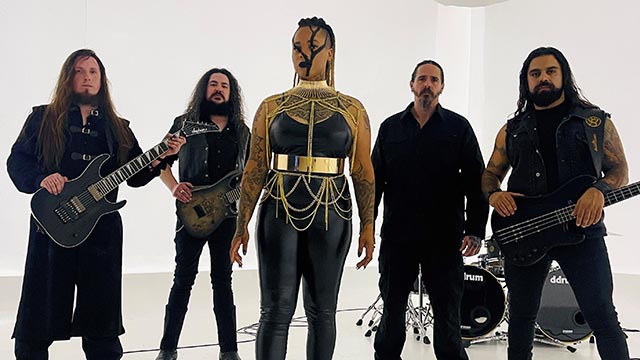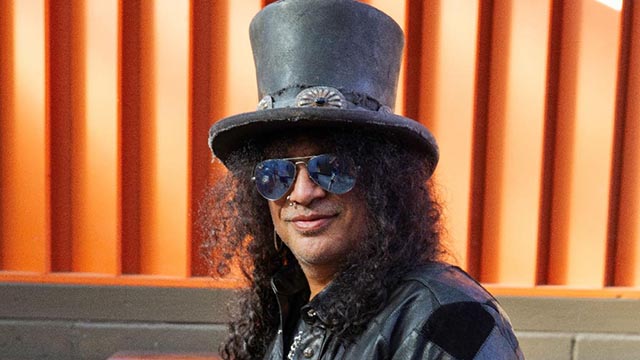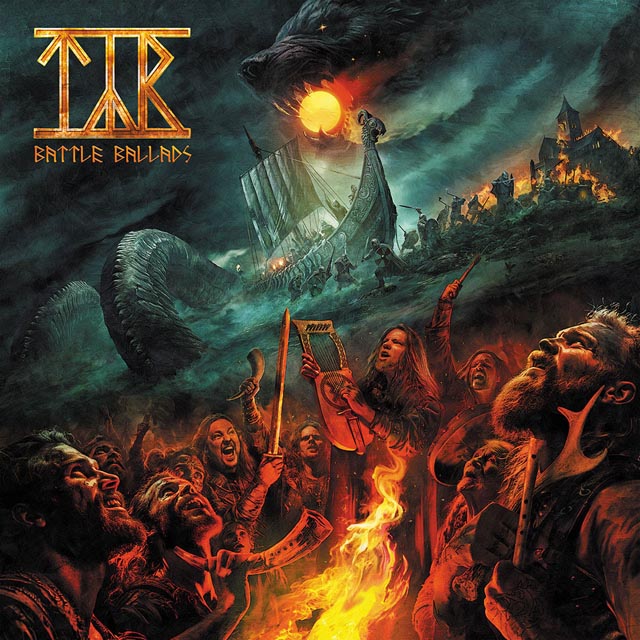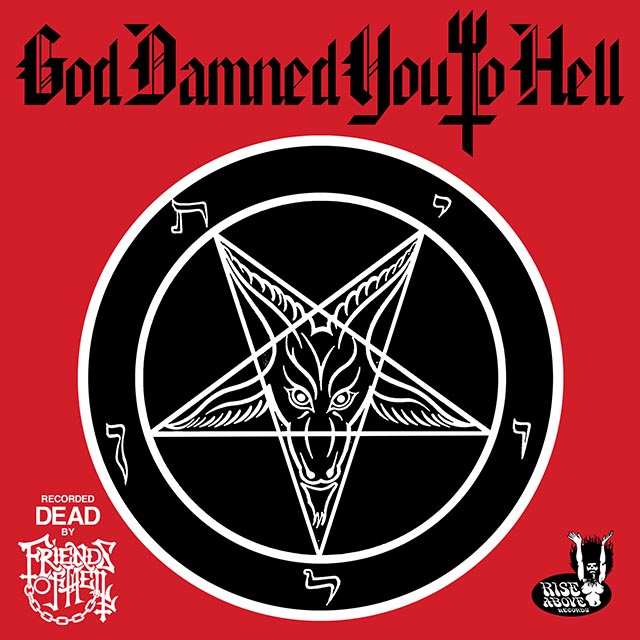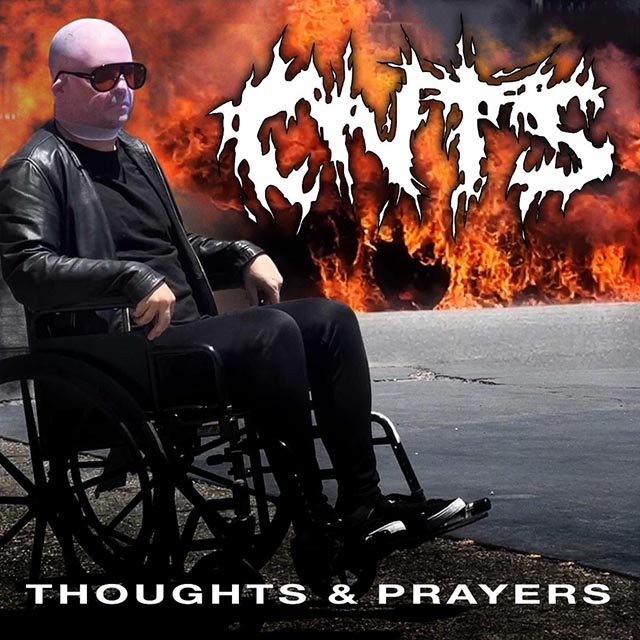
Linkin Park’s debut album, Hybrid Theory, was released in 2000, and it instantly took off. Because of songs like “One Step Closer” and “In The End,” the album eventually sold 10 million copies. Their follow-up, Meteora, was nearly as successful and the band’s blend of nu-metal crunch and pop craft has kept them in the spotlight sixteen years later, as they continue to work on their seventh album. In a recent interview with Metal Hammer, who named Hybrid Theory one of it’s top metal albums of the 21st century, singer Chester Bennington says “in my opinion, we actually kept metal alive.” That’s a statement that has confused and enraged many a metal fan. So we decided to ask the Metal Insider staff their take on Bennington’s statement.
Bram: Taken at face value, that’s a ridiculous statement that deserves all the mockery it’s getting. However, look back at 2000. There were some amazing albums that were released that year by the likes of Lamb of God, Killswitch Engage, In Flames, Iron Maiden and even Pantera. But the best selling albums were by Santana, N’Sync, Britney Spears, Eminem and Nelly. Over the next two years, Hybrid Theory would sell 10 million copies, something Adele hasn’t even done yet. Bands including Tool, Staind and System of A Down would have #1 albums in that time period. It would be impossible to deny that some 13 or 14 year-olds somewhere along the line realized that pop music they were listening to was wack, and found the “heaviness” of Linkin Park enough to gravitate towards metal. Have any of the Linkin Park fans from 2001 and 2002 gone on to be in genre-defining metal bands? I’m sure most wouldn’t cop to it, but out of 10 million people, there are likely countless bands now whose members’ first exposure to guitar-oriented current music came from hearing Linkin Park on the radio.
When I first heard Hybrid Theory, I enjoyed it from a production standpoint. I liked some of the songs, and lumped it into the rest of nu-metal, some of which I liked, and some that I didn’t. It’s pretty much what hair metal was to my generation. True metalheads hated hair metal when it came out because a lot of the bands were pretty boys and the songs that reached the biggest audiences were generally the ballads. But 30 years later, some of the tr00est kvlt metal fans will sing along to a Motley Crue song. I’m not saying LP are a guilty pleasure, just that they might have been the first heavy thing that many a kid with developing music tastes discovered for their own.
The thing is, metal was doing just fine. Any record selling 10 million copies is keeping the music industry alive, so they helped out in that aspect. But it wasn’t until a few years later that Napster and file-sharing started making record sales decrease. But the average true metal band wasn’t so worried about sales, and still isn’t. They’re going to drive to a town, play a show and sell merch to make their money, not wonder how many albums they sold in a week. That’s where the disconnect is.
Zach: Bram makes some extremely solid points. With that said, I still have a really hard time saying Linkin Park “saved” metal. And I am by no means a metal elitist, as I’m sure everyone at Metal Insider HQ would be more than happy to attest to (yeah, I like Avenged Sevenfold, come at me bro!).
To me, when I think of bands considered to be the “saviors” of any particular genre, they’re a band that made such an enormous impact on the industry that literally no one can ignore it. The kind of impact that makes every label, manager and hell even musician go “hmm, this is what we oughta be doing!”. Linkin Park sold an incredible amount of albums, and you could say they saved a lot of aspects of the industry from a financial stand point. But it wasn’t like we saw a ton of carbon made copies of Linkin Park flood MTV or the mainstream. You could argue that by the time Linkin Park hit big, nu metal was already on a downhill slope. If anything, the fact that Linkin Park survived the nu metal downfall is incredible. But at no point did they truly make metal “cool” or “viable” in the eyes of outsiders. Metallica did. Guns N’ Roses did. Hell, even Korn did in the late 90s (why else would nu metal have been featured on TRL with the likes of the Backstreet Boys?). Not that metal really cares about being extremely popular. Though if that is the case, then what did Linkin Park save metal from?
So did Linkin Park make so much money that they essentially saved music industry (or arguably delay the inevitable downfall of music sales as we know them today), maybe even helping ensure that a few hard rock bands got funding from labels that otherwise wouldn’t have existed? Sure. Did they save metal as an entire scene? Eh…
Chris: I’m actually really happy that this came up as a topic, because all of the scorn that I’ve seen about Chester’s statement overlooks some very important points. A lot of people seem to be oblivious to the history of music and where metal was when Hybrid Theory came out. Bram brings up a key part of that by recalling the bands that sold the most music during that time period. From among the sea of bubblegum pop music rose a band that incorporated guitars, drums, and screaming into the forefront of their sound. Sure, it may not fit in with what we might call “metal”, but it was undeniably a heavy sound.
Let’s think for a moment about what preceded Hybrid Theory in the realm of music popularity, at least pertaining to rock and metal. What was at the forefront? Grunge, that wonderful subgenre that killed all of metal’s momentum from the ’80s and nearly sent the entire metal scene back into the underground. Like it or not, grunge made it unpopular to like bands with crazy guitars, pounding drums, and heavy vocals. The more mellow approach that grunge espoused meant that heavy metal had to take a back seat, and no one knew when the genre would escape that spot. Hybrid Theory, in many ways, was metal’s unintended escape route from obscurity. If not for “One Step Closer” screaming “SHUT UP WHEN I’M TALKING TO YOU!” at a generation of angst-filled teenagers, who were watching their entire generation be dismissed from relevance by their predecessors, heavy music might not have ever broken back into the mainstream. We might have never had bands like Disturbed, Avenged Sevenfold, and Five Finger Death Punch becoming mainstays at the #1 position on the charts. Hybrid Theory was the album that made it okay for teenagers (like me at the time) to buy heavy music, publicly display the values that heavy music embraced, and make statements that were reinforced by a piece of popular culture.
Linkin Park selling 10 million albums in two years was a turning point in the history of heavy music, and Hybrid Theory does deserve recognition for being the album that made it okay for heavy music to have a place of recognition in the mainstream. And like it or not, that recognition is what led to metal coming back into the limelight. So while Linkin Park may not have necessarily kept metal alive, I firmly believe they were instrumental in ushering in the current age of metal popularity. The history of popular music and the logical steps that can be taken among historical events are not hard to follow when making that conclusion, and people going out of their way to deny such a connection may want to look closer at their objectivity in this.
Nick: I’ll be the first to admit that I connected with Linkin Park as a kid. I wish I could unhear Hybrid Theory, so I could go back in time and hear it again for the first time. I grew up on decidedly older music for the most part, and what came out of my shitty little discman on the way home from middle school that day sounded like the goddamn mother ship landing compared to, I don’t know, Marvin Gaye or whoever. I went back and revisited the early Linkin Park catalog one of the last times it came up in conversation, and while Hybrid Theory‘s subject matter has aged terribly to my ears, (I liked my parents too much to relate on any kind of deep level) that album still sounds like it was recorded yesterday, which is pretty amazing compared to even a lot of their contemporaries in the music scene from nearly 20 (!!!!) years ago. More importantly, it was one of the handful of loud bands that made me say as a young kid, “fuck, this is so aggro, and loud, and angry, and I wonder if there’s music out there that’s crazier than this,” which ultimately brought legitimately extreme metal to the table very shortly thereafter.
That said, I think Zach nailed it on the subject of popularity. I don’t know if Linkin Park “saved” much of anything as I’ll also be the first to admit that they came in on the downswing of a trend that had already pretty much hit its event horizon with Limp Bizkit and the Woodstock ’99 debacle. In fact, it’s impressive that they swooped in the way they did when the popular opinion seems to be that the turn of the millennium was when nu metal started to lose its awareness and spiral into self-parody. If the influx of new (not nu) metal fans was waning at that time, I can personally attest to my metal fandom owing something to Linkin Park. There’s a lot to be said for putting out a record at the right time that’s just different enough to hook a new generation and reel them in. Fast forward to now, and loads of younger bands are citing LP and their contemporaries (Slipknot, Korn, etc) as influences for things like popularizing the use of extended range guitars and ultimately influencing the way metal across the spectrum developed, up to and including progressive music. I don’t think they saved metal, and I certainly like some unlistenable brutal shit, but for anyone else born in the 90s, I don’t think it’s a radical opinion that their reach is further-reaching than most of us are willing to admit.
Chip: I must fully admit from the start that I’m a metal elitist. I’m a curmudgeonly old man sometimes when it comes to my metal and things like albums sales and gold Records don’t mean diddly-poo to me at all when it comes to assessing a genre and who the groundbreaking acts actually are. Growing up in the 80s my radio stations and MTV were filled with hair bands. No self-respecting metalhead back then considered Poison, for example, to be metal. They were rock bands that mainstream media called “metal” because they weren’t Bruce Springsteen or Billy Joel. A generation later and nu-metal filled the gap that hair bands once did – the watered down version of a genre that labels couldn’t otherwise mass-market to kids who didn’t know any better. Could Linkin Park be a gateway band for kids to go from Nelly to something heavier? Absolutely, why not. Poison did back in the day for a lot of kids, I’m sure. No shame in that. But I’ll ask this: Did Poison “keep metal alive” in 1988 when they were selling tens of millions of records? No? Would the bands who were partaking in the burgeoning death, doom, grind, and black metal scenes in 1988 have not been able to record their music if Poison hadn’t sold as many albums as they did? No? You can carry that logic forward another dozen years. What happens within a genre of music is almost never, ever truly reflected by its most popular acts, especially acts existing on the fringes of the music world such as punk and metal. (Notable exceptions include the Outlaw Country movement of the 70s and, of course, NWOBHM.) You know who else put out records in 2000 – Electric Wizard, Exhumed, Goatwhore, Rob Halford, High On Fire, Iron Maiden, Isis, Krisiun, Nile, Orange Goblin, Wolf, Cephalic Carnage, Black Label Society, and about a hundred other amazing metal bands. All of whom would still have released albums that year if Linkin Park had never sullied a single set of speakers. You want to argue that Linkin Park kept mainstream rock stations from dying earlier deaths than they started to, go for it. Kept metal alive? Fucking please.
Alix: I’m probably the one who would usually get the “elitist” tag considering I’m more inclined towards extreme underground metal but I see the idea Bennington is trying to address with his statement.
Linkin Park was the first heavy band many people started listening during their teenage years and that didn’t happen because kids were going to a record store digging up the most obscure and brutal-looking record they could find, but because of the major mainstream exposure they received by MTV and all this major media outlets. My own background started with some of the classic metal albums every one listens to like Metallica, Guns N’ Roses, Megadeth and all the bands everybody cherished from the 80’s, but when Hybrid Theory came out, you can be sure I got it. That’s the major point Bennington is trying to bring, except that he’s not wording it properly and many are getting their jimmies rustled because it sounds too broad.
As Bram mentioned, artists like Britney Spears, Christina Aguilera, N’Sync and all that awful music no one wants to remember from the time were the biggest hits in every radio stations and music show in the air, but every now and then, “Crawling” would blast and created a contrast that attracted the same generation that was fascinated by grunge in the mid 90’s. There were many other bands that spawned at the time, which basically encapsulate all the Nu-metal bands like Korn, Limp Bizkit, and Slipknot and those received the same attention from the media as Linkin Park and their hype may have slowed down but they’re doing pretty good nowadays. That shows that basically every popular nu-metal band at the time created the same impact as Bennington and company. That’s where the statement starts to fade and lose traction because while the commercial success of Hybrid Theory was widely spread in the music industry, the genre itself would’ve survived and flourished even if LP never existed.
In addition to that, most of the conventional metal was doing just fine behind the scenes. Sure, they weren’t reaching Billboard’s chart and breaking record sales but still kept a steady and successful careers like Opeth, Iron Maiden, Mastodon or Children of Bodom. At the end of it, Linkin Park deserves the merit of their success and the attention they collectively brought up from the mainstream media with the rest of the huge bands from the time, but saying they “kept metal alive” it’s a bit of an overstatement.
Matt: As most everyone has said, Bennington’s statement is a bit too broad and overreaching. Metal in the year 2000 wasn’t rocketing to the top of the Billboard 200, but it also wasn’t lying dead on the side of the road. It was there just like it always has been. Hell, Ozzfest was going into its fifth year at that time with a pretty good line-up, too (at least for early 2000’s). But I will certainly agree that for many kids at that time Linkin Park and Hybrid Theory was very formative. They were a gateway band that morphed many youths into budding metalheads. For others, they were a crossover hit, striking up with listeners who might not otherwise dig heavier music the same way Metallica and Guns N’ Roses had done over ten years prior.
No, I don’t agree with Bennington’s claim as worded, but looking into it more I see what he’s trying to say. They’re up there with Avenged Sevenfold and Five Finger Death Punch in terms of appealing to a wide audience and scoring best-selling hard rock/metal albums. Simply put, they were highly influential on a new generation that went on to discover new things. Whether or not their success was instrumental in shaping metal’s landscape today is up for debate.



